Data is one of the most valuable resources in the digital age. Access to free, reliable information is crucial when conducting market research, creating academic reports, or developing business insights.
This article will explore various platforms and sources for finding free data, addressing all your needs, from government resources to specialized information.
1. Government Portals
Government portals offer a wealth of free data across various topics like public policy, demographics, and economic conditions. These platforms are valuable for researchers, policymakers, and businesses looking for reliable, authoritative data to inform decisions or gain insights into population and economic trends.
Data.gov (USA)
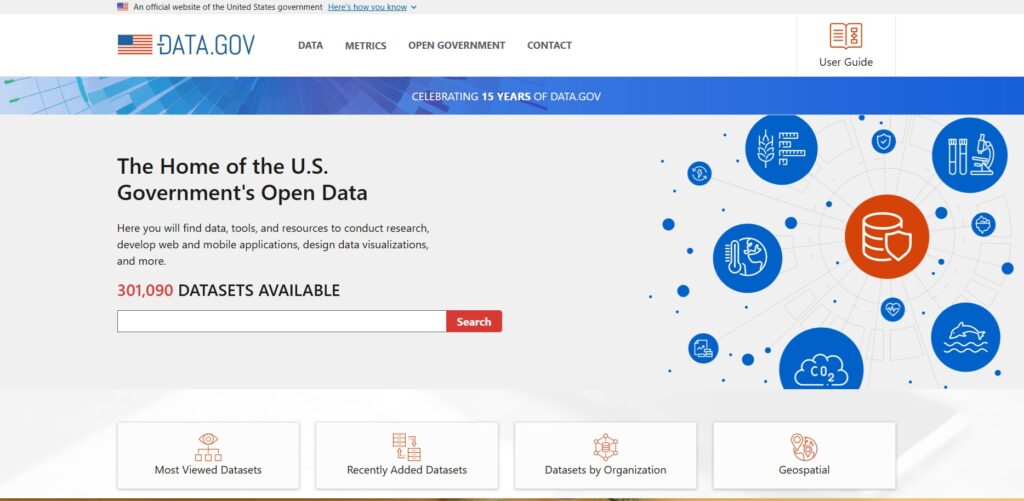
Data.gov is the official open data portal of the United States government. It hosts nearly 300,000 datasets from federal, state, and local government agencies, covering topics such as agriculture, climate change, and education. You can also find data on government spending, public safety, and scientific research.
Data.gov.uk (UK)
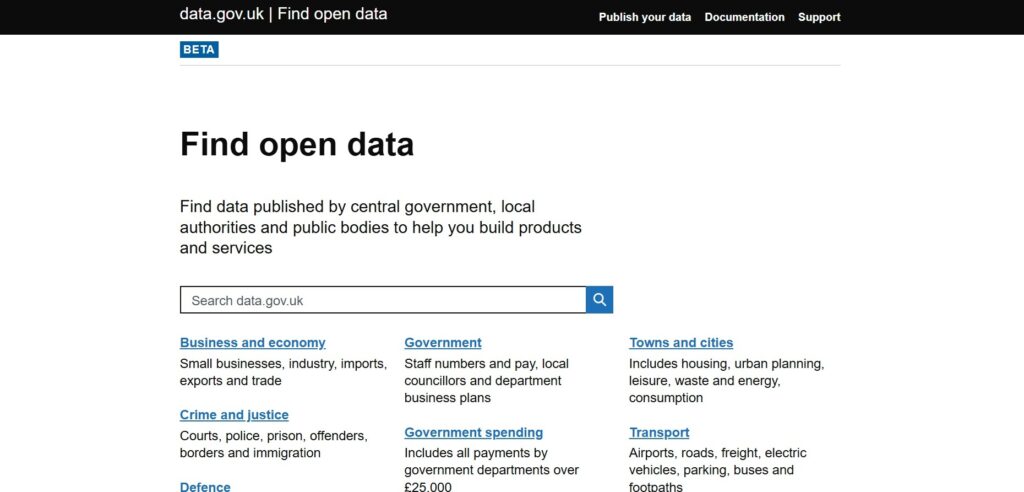
For those interested in data from the United Kingdom, Data.gov.uk provides access to thousands of datasets. The UK government uses this portal to share information on public services, government expenditures, healthcare statistics, and transportation. The user-friendly platform allows you to browse by category or search for specific topics.
U.S. Census Bureau
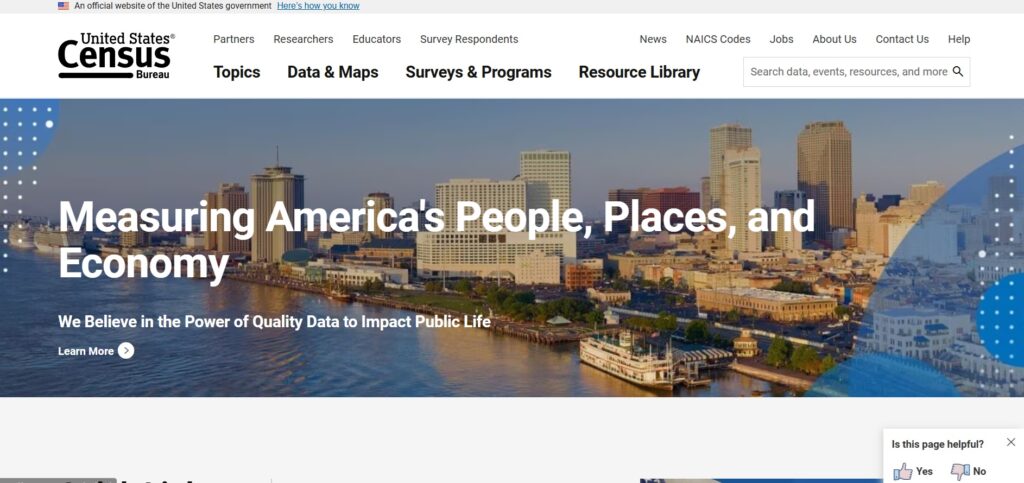
The U.S. Census Bureau is an essential source of demographic data. It provides detailed information about the U.S. population, including census results and economic and geographic data. You can use this data to track population growth, study housing trends, or analyze income inequality across regions. Additionally, the Census Bureau offers tools like “American FactFinder” that help users find detailed statistics on any demographic or economic variable.
Eurostat
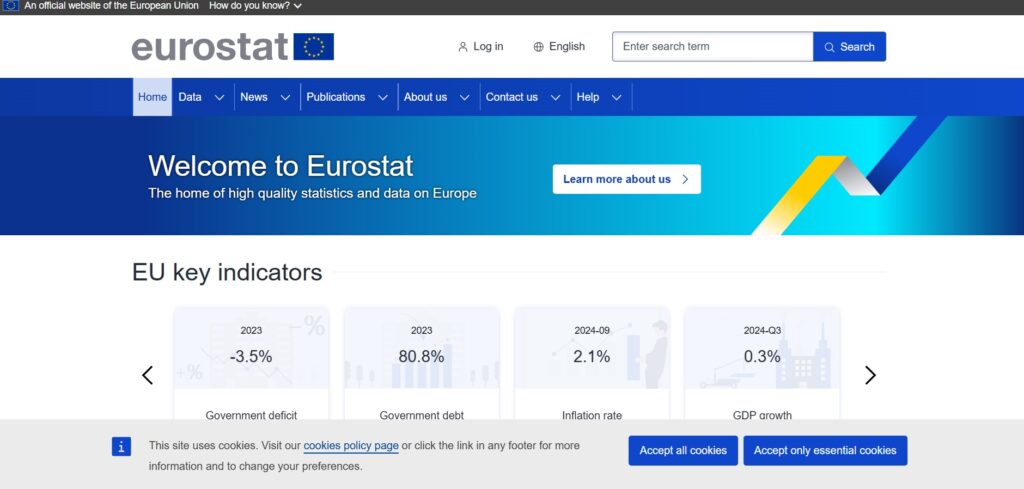
Eurostat is the statistical office of the European Union, providing high-quality statistics for Europe. It offers comprehensive data on various topics, such as the economy, environment, industry, and social demographics across EU countries. This portal is handy for those needing comparative international data to track economic performance, study policy impacts, or assess European environmental sustainability.
2. Global Organizations
Global organizations provide comprehensive free data covering international economics, health, and development. This is especially useful for academics, NGOs, and multinational businesses needing a global perspective for comparative analysis or policy development.
The World Bank Open Data
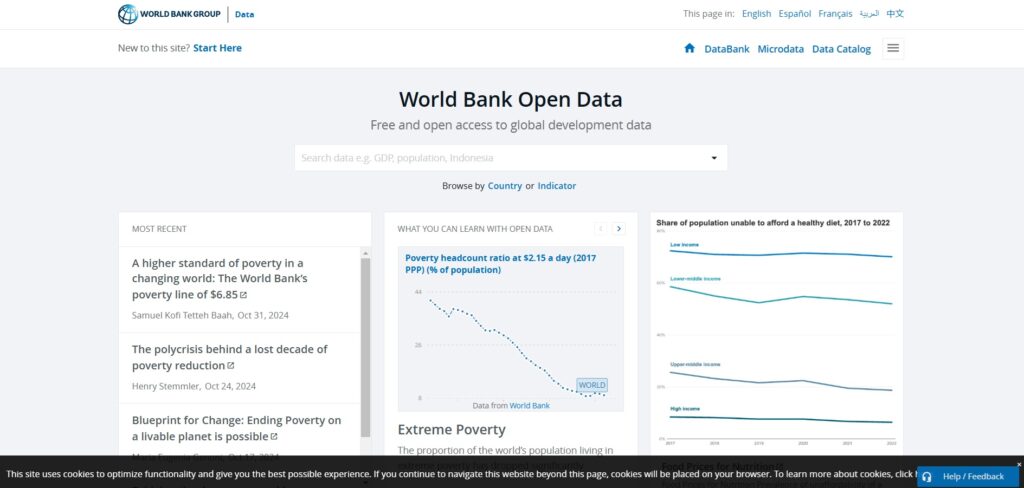
The World Bank’s Open Data is a go-to resource for global economic statistics. It offers thousands of free datasets covering poverty, education, infrastructure, and environmental sustainability. You can filter information by country, region, or topic, making it easy to compare economies across the globe. Additionally, the World Bank provides interactive tools for visualizing economic trends and creating custom data reports.
The United Nations (UN) Data
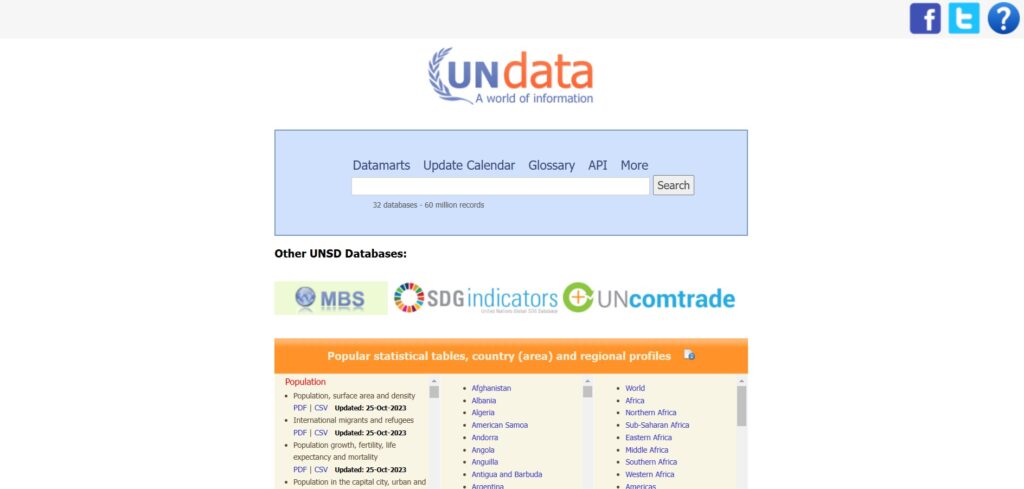
The UN Data Portal offers datasets on international trade, finance, and development indicators across 190 countries. Topics range from GDP and employment rates to energy consumption and gender equality. The portal allows users to download data in various formats, making it a highly flexible tool for conducting global comparative research.
International Monetary Fund (IMF)

The IMF’s Data Portal provides free access to economic and financial data worldwide. It’s an excellent source for macroeconomic indicators like inflation rates, GDP, and foreign exchange reserves. The IMF also offers specialized resources related to international finance, government budgets, and monetary policies.
3. Academic and Research Resources
Several platforms provide free access to high-quality data, ranging from social science surveys to complex environmental models, for those in academic or scientific research.
Kaggle
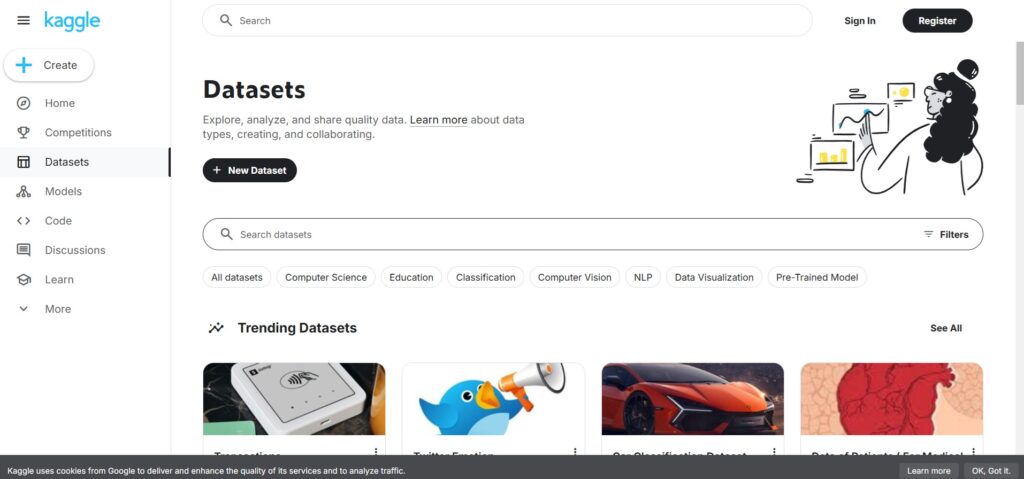
Kaggle, a subsidiary of Google, is a hub for data scientists and machine learning enthusiasts. The platform features data across various domains, such as healthcare, finance, climate science, and public policy. Kaggle also hosts competitions where users can submit models or solutions based on available resources, making it a vibrant community for learning and collaboration.
Google Dataset Search
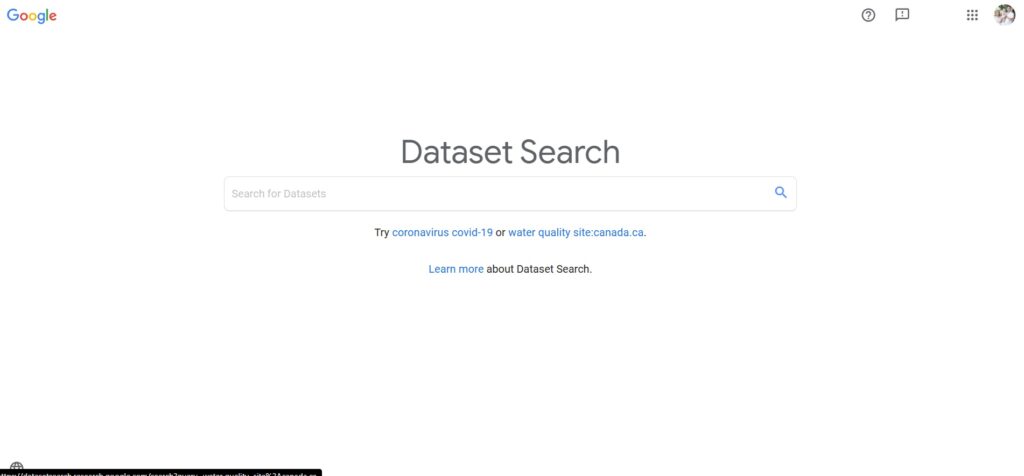
Google Dataset Search is a specialized search engine that indexes datasets worldwide. Users can search by topic, type of data, or hosting institution. It aggregates data from reputable sources like government agencies, research institutions, and academic journals. This platform is perfect for researchers who need to locate specific information for their studies quickly.
4. Public Opinion and Media Trends
Platforms that provide insights into public opinion, media coverage, and cultural trends can help researchers, journalists, and businesses understand societal trends and public sentiment.
FiveThirtyEight
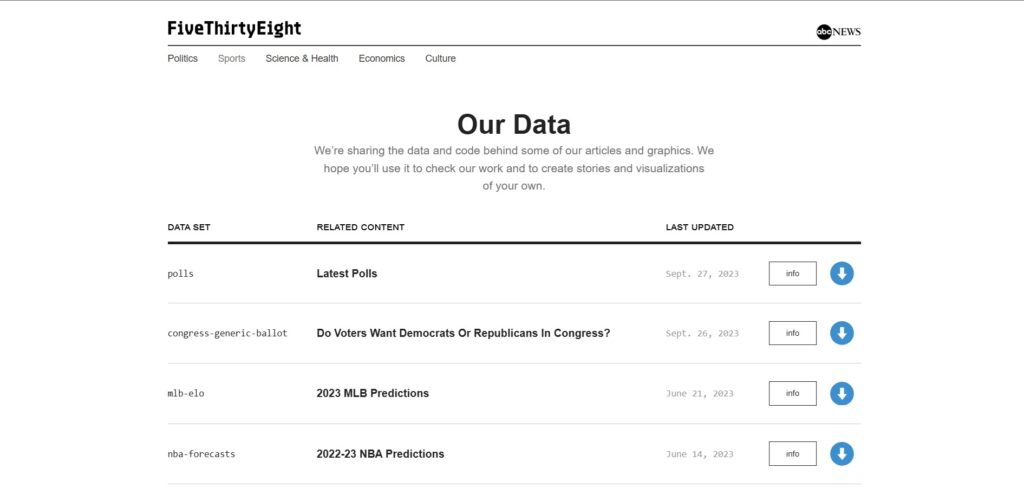
FiveThirtyEight is a data journalism platform offering data on topics such as political polling, sports statistics, and cultural trends. The platform publishes raw data used in its journalistic articles, providing access to data that underpins their in-depth analyses and visualizations.
ProPublica
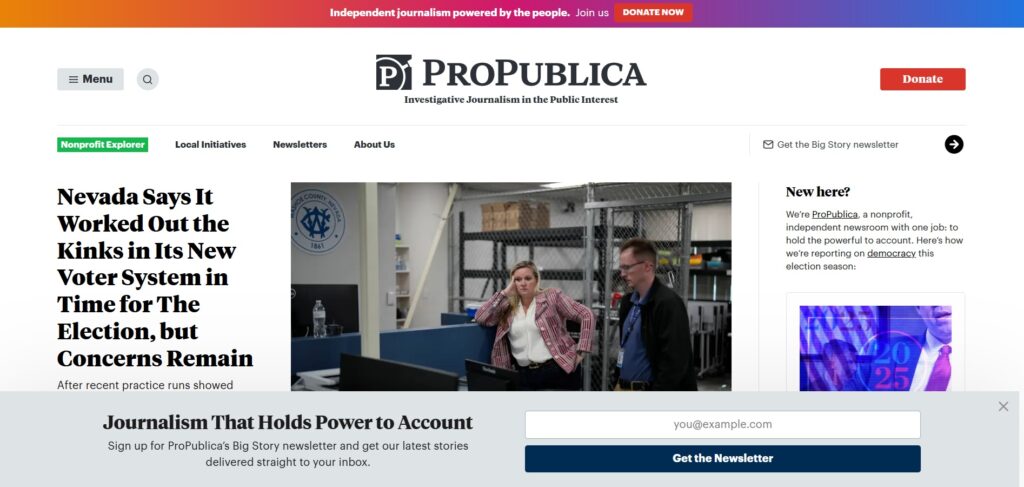
ProPublica is a nonprofit investigative journalism outlet that provides access to information related to government oversight, healthcare, and political contributions. The platform makes these datasets available to support transparency and accountability, often related to U.S. government activities.
Altmetric
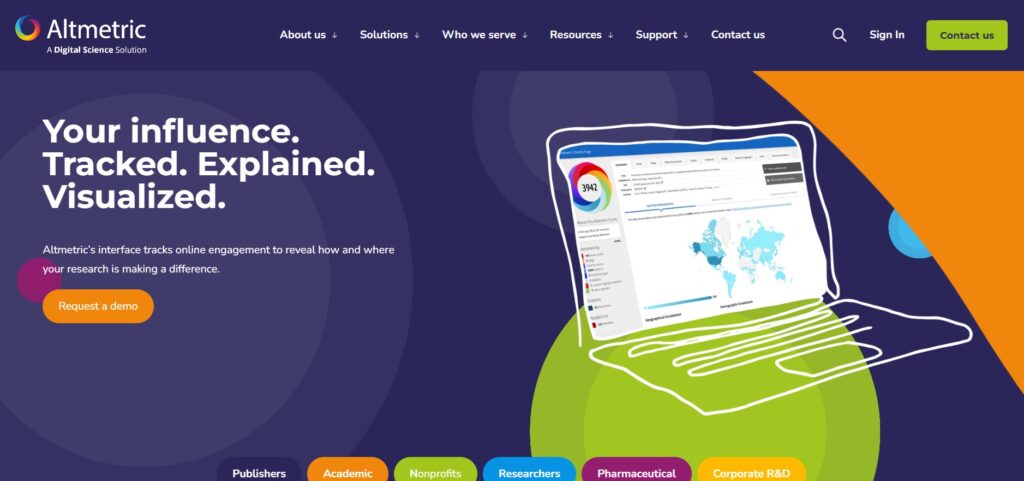
Altmetric tracks the reach and impact of academic papers and scientific publications. While primarily used for monitoring the attention research receives online, Altmetric also offers access to resources that showcase trends across academic disciplines, allowing researchers to gauge the societal impact of their work.
Pew Research Center
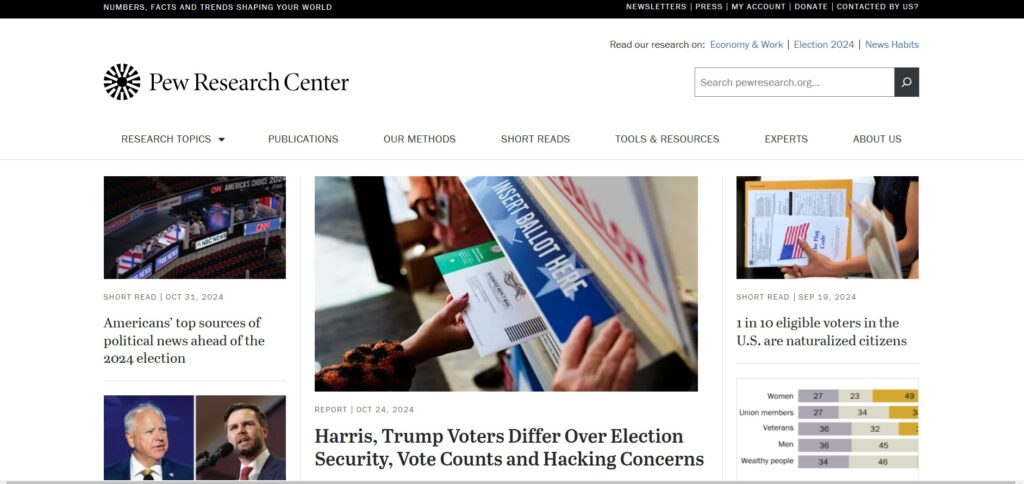
Pew Research offers access to its wide-ranging public opinion surveys. Covering topics such as technology adoption, politics, social trends, and media consumption, Pew Research’s data is particularly useful for those studying sociological patterns. Many of their resources are available for download, and the center offers tools to help you analyze the data using statistical software.
5. Environmental and Geographic Data
For those working on environmental studies or geographic information systems (GIS), free datasets are essential for conducting climate analyses, urban planning, and ecological studies.
National Centers for Environmental Information (NCEI)
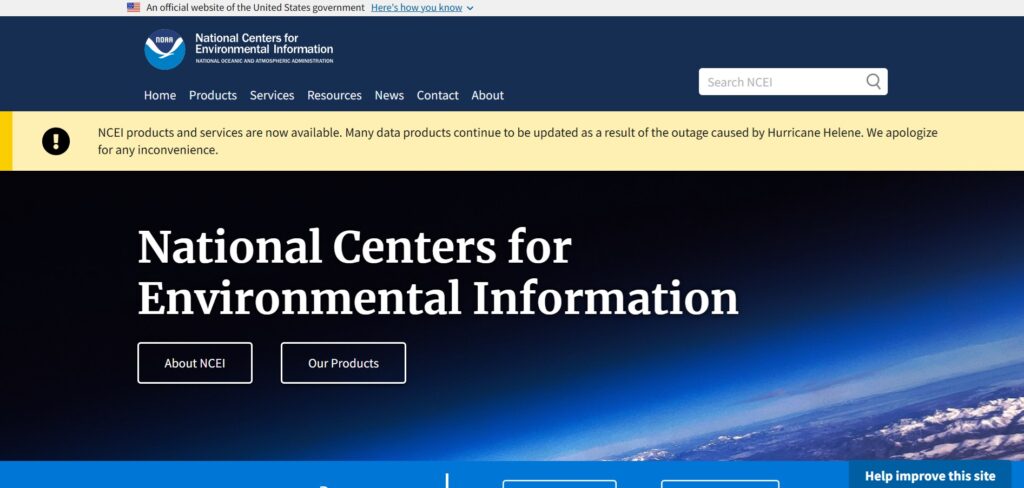
The National Centers for Environmental Information (NCEI) is the world’s largest provider of climate and environmental data. It hosts extensive information covering atmospheric, oceanic, and geophysical data, including historical weather patterns and climate trends. The platform also offers tools for data visualization and analysis, making it accessible to users of varying expertise levels.
NASA Earth Data
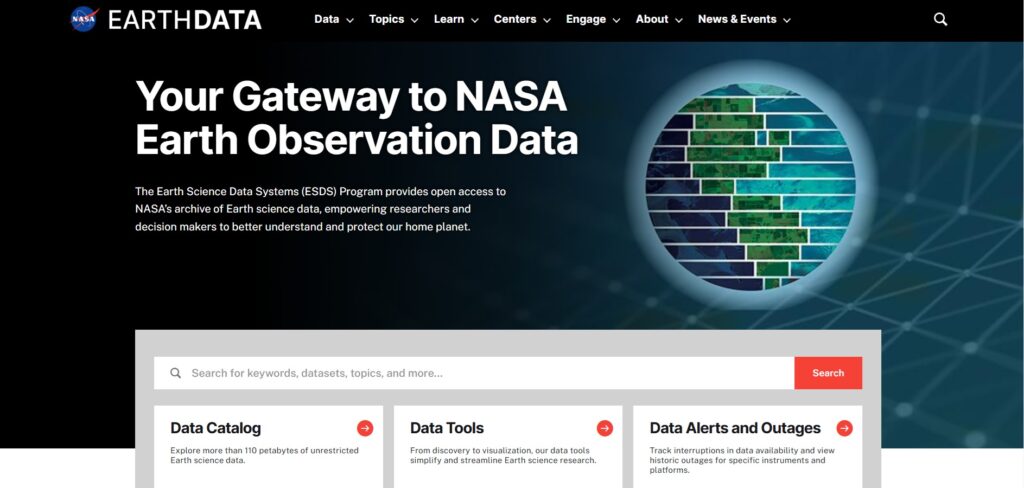
NASA Earth Data is an incredible resource if you’re looking for more advanced satellite-based environmental data. The platform offers access to NASA’s Earth Observation System (EOS), including land surface temperatures, carbon flux, and air quality records. The data is available in various formats, from raw satellite imagery to processed data.
European Data Portal
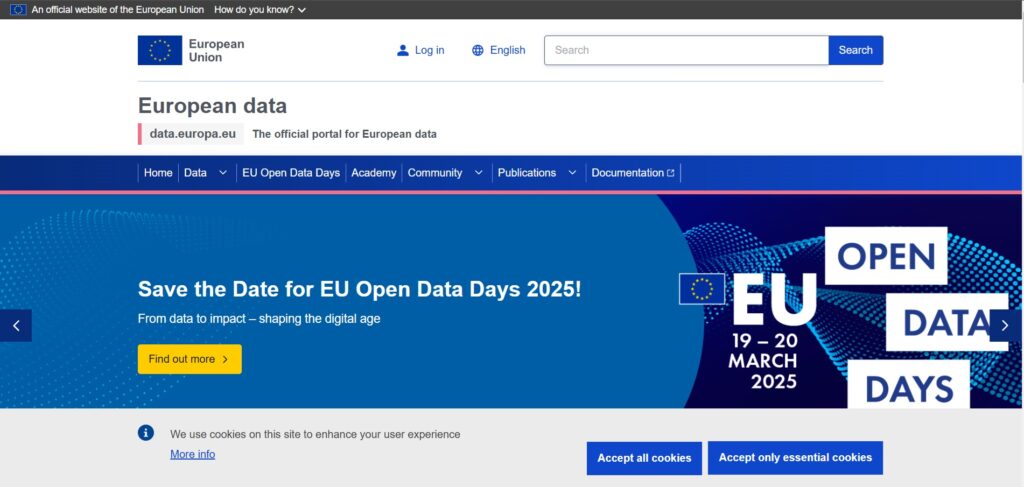
The European Data Portal aggregates geographic and environmental information from across the European Union. It offers a wide range of data, including energy consumption, environmental sustainability, and regional planning, making it ideal for cross-border analysis within Europe.
6. Health and Medical Data
Health and medical data access is essential for researchers, policymakers, and healthcare professionals looking to understand global and regional health trends. Several platforms provide accessible, reliable, and up-to-date health data.
HealthData.gov
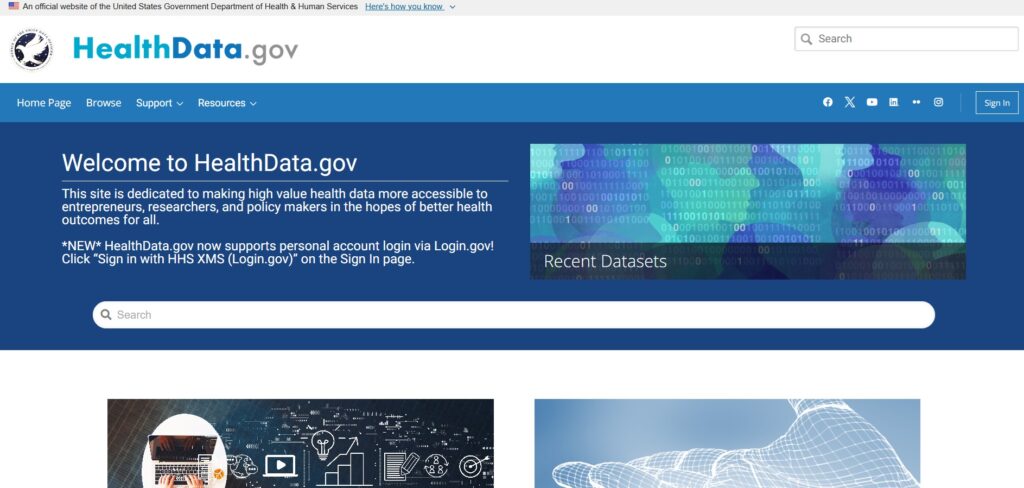
HealthData.gov offers a comprehensive collection of public health information, medical research, and healthcare services in the United States. Topics range from substance abuse and chronic disease management to environmental health. During the COVID-19 pandemic, it became a critical resource for tracking cases, hospitalizations, and vaccination rates. The site allows users to filter datasets by health condition, demographic factors, and geographic location.
Centers for Disease Control and Prevention (CDC)
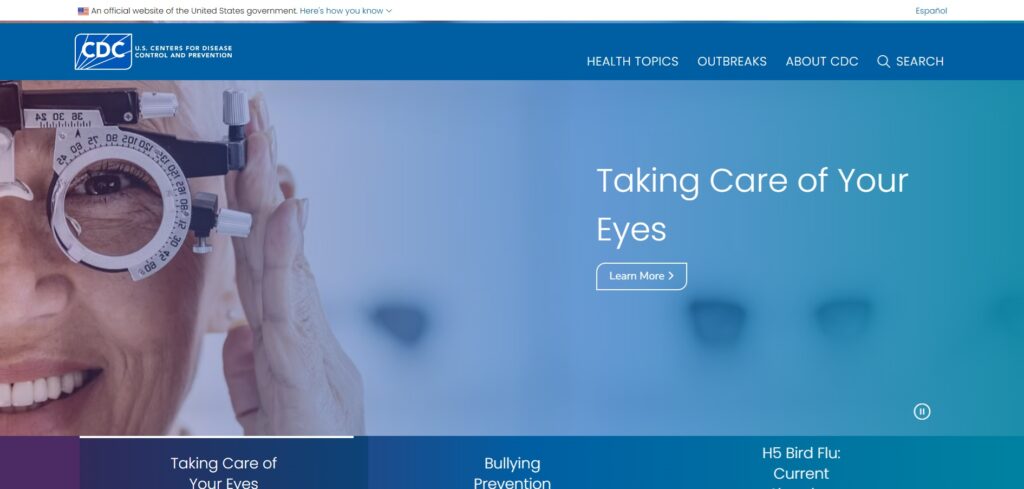
The CDC’s Data and Statistics portal is another goldmine for public health data. It provides various resources covering health trends, diseases, environmental risks, and public health infrastructure. The CDC allows users to create custom reports using its data visualization tools.
World Health Organization (WHO)
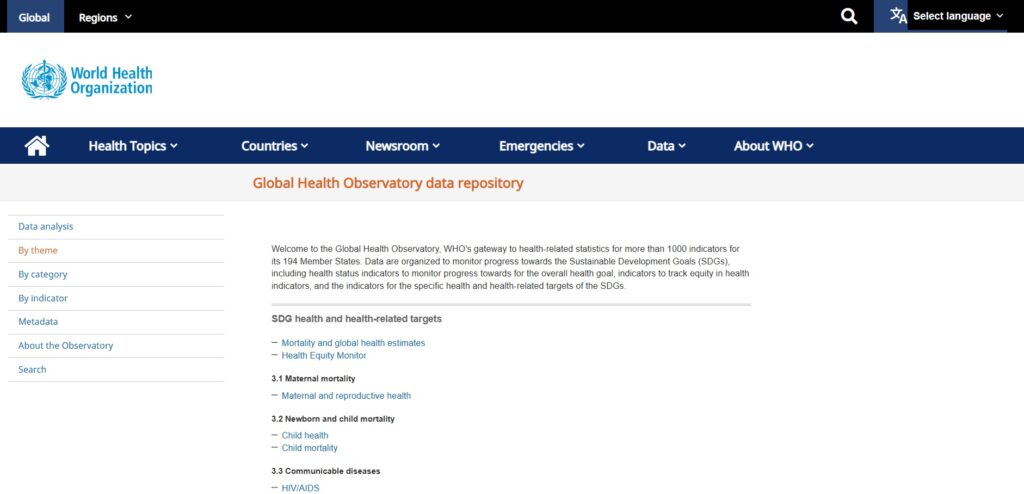
The WHO Global Health Observatory is a crucial source of international health data. In addition to offering over 1,000 indicators on global health statistics, it provides specific datasets on infectious diseases, life expectancy, maternal health, and health equity. Whether you’re researching global pandemic preparedness or analyzing healthcare systems across countries, WHO’s data is indispensable.
7. Business and Economic Data
Free access to business and economic data is crucial for professionals and analysts who must understand markets, economic trends, or industry performance. Several platforms provide this data, covering global and regional economies.
Bureau of Labor Statistics (BLS)
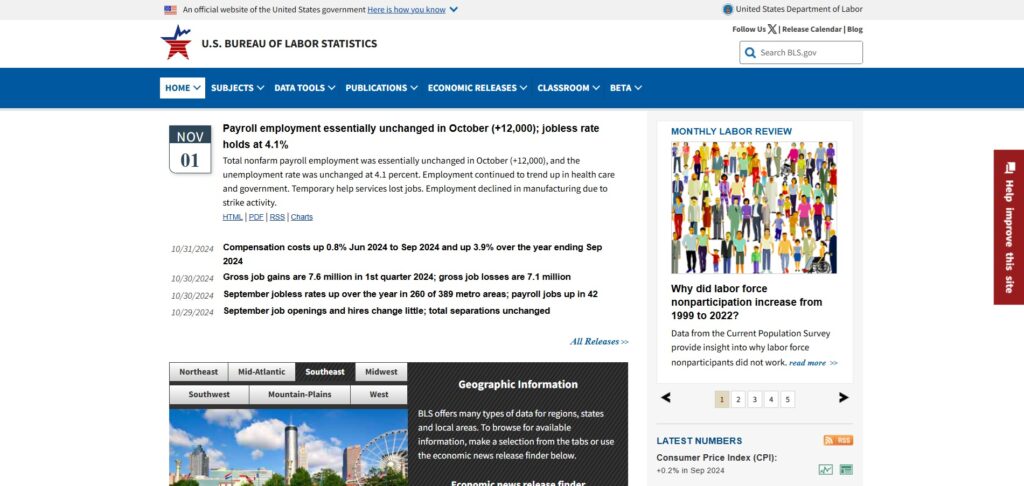
The Bureau of Labor Statistics (BLS) is a U.S. government agency that provides comprehensive data on employment, wages, inflation, and productivity. Its datasets are sourced from national surveys and labor market reports, making it a reliable resource for tracking economic indicators and workforce trends.
Open Corporates
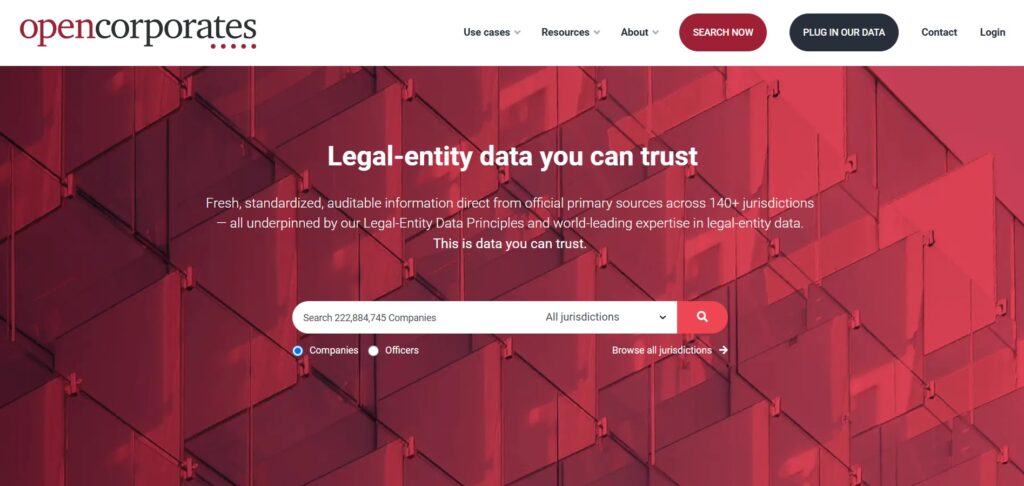
Open Corporates is the world’s largest open database of companies. With information on over 200 million companies, it provides detailed insights into corporate registrations, company hierarchies, and financial data. It also offers API access, making it an excellent tool for developers building business intelligence platforms or conducting in-depth corporate research.
Amazon Web Services Registry of Open Data
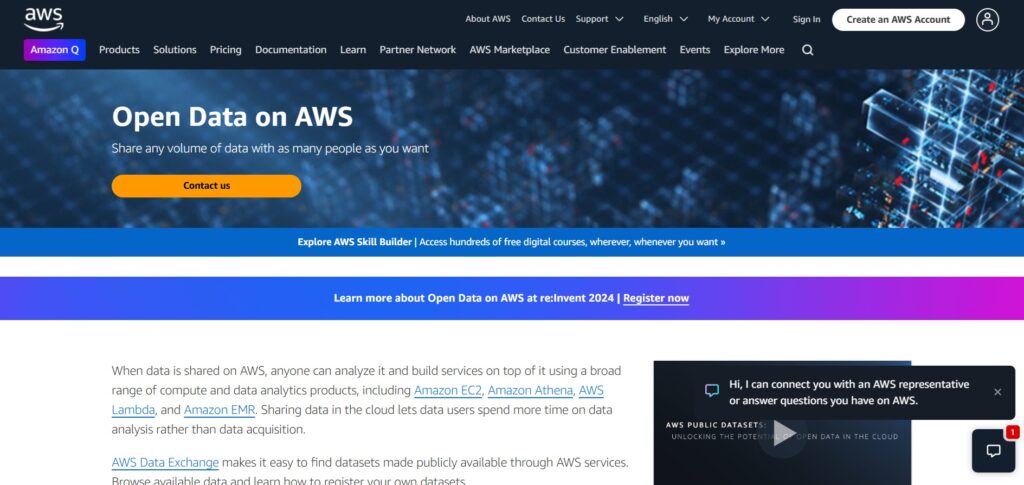
AWS Open Data offers various industry-specific data, from genomics to geospatial information. Amazon’s platform allows users to analyze large datasets using its cloud computing services. Whether you’re looking to study e-commerce trends or environmental data, AWS Open Data provides the infrastructure to store and analyze large volumes of information, making it an ideal resource for big data.
8. Social Media and Web Analytics Data
Social media and web analytics data are incredibly valuable in the era of digital marketing and e-commerce. Several platforms offer free data access, which can be used for trend analysis, competitive benchmarking, and audience segmentation.
Google Trends
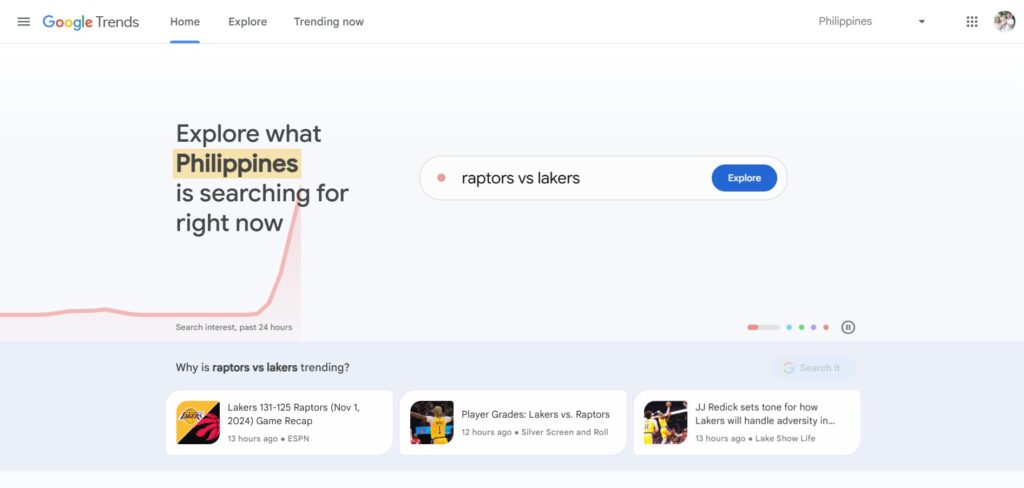
Google Trends shows the popularity of search terms over time, providing insights into search behavior across different regions and periods. The platform allows users to compare search volumes and explore trending topics, making it useful for tracking shifts in online interest.
Twitter API
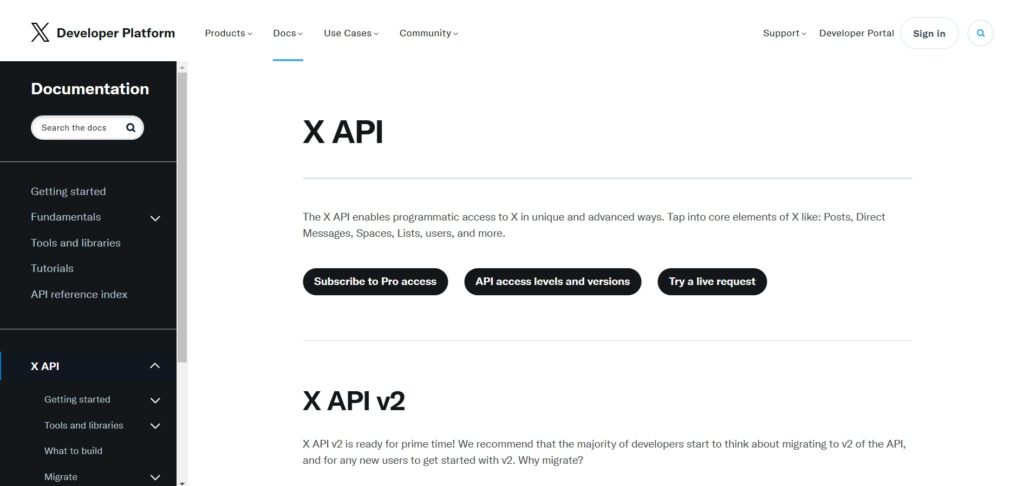
The Twitter API offers programmatic access to Twitter’s vast dataset of public tweets. It provides endpoints for retrieving real-time or historical data, tracking keywords, analyzing user interactions, and monitoring trends.
Facebook Audience Insights
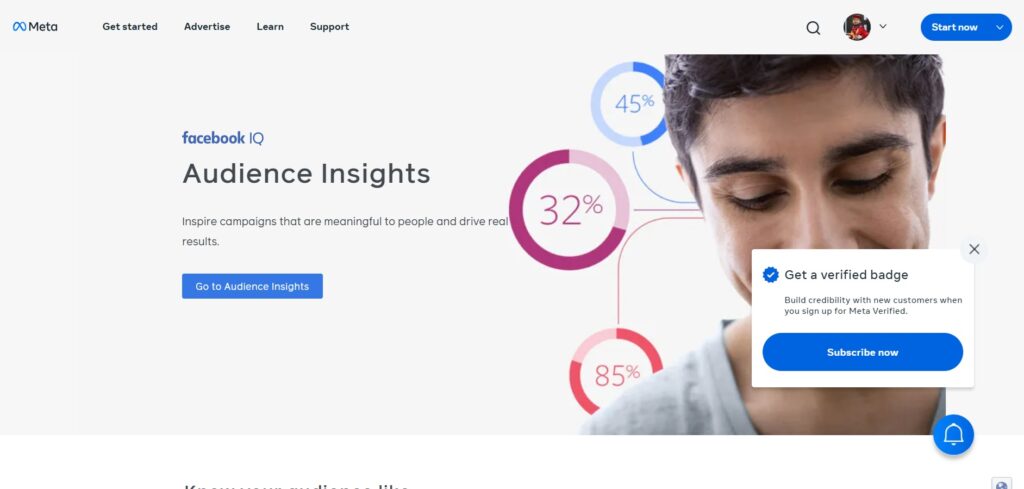
Facebook Audience Insights aggregates anonymized data about Facebook users, offering insights into demographics, behaviors, and interests. The platform allows for detailed audience segmentation, helping users understand how different groups interact with content on Facebook.
Final thoughts
Accessing free, reliable data has never been more important for informed decision-making, research, and innovation. From government portals and international organizations to specialized research platforms, there’s a wealth of information available to help you understand trends, make data-driven choices, and gain insights across industries and sectors.
Whether you’re analyzing public policy trends, comparing international health data, or exploring business statistics, the sources and strategies in this guide offer powerful tools for your needs—all at no cost. As data availability continues to expand, leveraging these resources effectively will give you an edge in understanding the world and driving success in your work.
We empower people to succeed through practical business information and essential services. If you’re looking for help with SEO, copywriting, or getting your online presence set up properly, you’re in the right place. If this piece helped, feel free to share it with someone who’d get value from it. Do you need help with something? Contact Us
Want a heads-up once a week whenever a new article drops?







